When Women Run, Women Win
- By Suzanne Stanard
- Published

Women represent 54% of North Carolina’s registered voters, but they hold less than 25% of all appointed and elected offices in the state.
In fact, women hold less than 20% of the elected positions that have taxing and spending authority and only 10% of leadership positions such as mayor or board chair.
These statistics, along with myriad others that illustrate the severe underrepresentation of women in political office statewide, were recently published in a report from Meredith College: The Status of Women in North Carolina Politics.
But, said report author David McLennan, the outlook is not entirely bleak.
“When women run, women win,” he said. In the 2014 elections, for example, only 25% of candidates statewide were women, but 63% of those candidates won their races.
McLennan, visiting professor of political science at Meredith, brought 15 years of research, teaching, and nonprofit experience on the topic to this project. He developed the report with assistance from senior Emily Hawkins and sophomore Sidney Shank.
Why release this report now?
“I think this is a great opportunity for Meredith to get out in front of the issue of women’s political leadership and raise awareness of the problem as we enter another election cycle,” he said.
Valuing the Voices of Women
Meredith President Jo Allen agreed that Meredith is the right place to fuel change.
“Meredith prides itself on valuing the voices of women,” Allen said. “That’s why it’s important that Meredith sponsor this research, that Meredith tell this story. We’re not in enough elected offices right now, but there are women out there, leading and giving a voice to others, and they’re making a difference.”
McLennan said he is hopeful the timing is right.
“2016 presumably will be a year in which we have a major party candidate running for president who happens to be a woman,” McLennan said. “But, really, it’s not just about having a highly visible and viable woman run for president, or a woman as governor or senator,” he said. “One of the biggest findings of the report is that it’s at the local level where we really have problems.”
Indeed, in many rural areas of North Carolina women are not only greatly underrepresented in county and municipal offices, but there is no history of women ever serving in office. There are 44 rural counties, according to the report, that have no women serving on their board of county commissions.
Politics as the Last Glass Ceiling
Describing politics as “the last glass ceiling” for women, McLennan said that North Carolina has one of the largest gender gaps in the country.
“Despite the fact that Elizabeth Dole was elected to the United States Senate and Beverly Perdue was governor, little progress has been made in the last 23 years,” he said. “One of our most surprising discoveries is the fact that, since 2010, there has been a decline in the number of women running and serving.”
There are many reasons why so few women hold office, McLennan said, including redistricting of legislative seats and the hostile nature of today’s political climate. But the biggest reason is that so few women actually pursue office.
Women can win, McLennan said, but they’ve got to step up to run.
As founder of the North Carolina Center for Women in Public Service – which now has merged with the North Carolina Institute of Political Leadership – McLennan recruits and trains women to run for political office.
“I tell women that if you never run for office, you can’t win,” McLennan said. “And women don’t tend to run again after they lose. If you were to ask me who the next women to run for senate or governor will be, I’d have to say there are some women in the pipeline, but not as many as there should be.
“I’m a professional nag,” McLennan said. “I call certain women each year and ask them if they’re going to run for office.”
Inviting More Voices to the Table
It’s critical that women hold office because they bring a different perspective to serving and a collaborative approach that invites more voices to the table, McLennan said.
“Women also look at constituent relations differently and spend extra time hearing the concerns of citizens,” he said. “This is not to say that men don’t do these things, but I believe in having equal representation so that all perspectives are taken into consideration and the breadth of leadership styles is appreciated.”
Allen agreed.
“Having women in any leadership role is important,” she said. “The reason I think it’s especially important in politics is that if you look at the kinds of decisions women make about their families, health care, education, the well-being of their parents and the elderly, these are critical social issues, and they have the biggest impact on long-term social and economic viability. For women to have such a limited role in shaping legislation and interpreting policy is problematic.”
Seventy-five percent of the graduates of McLennan’s program for potential candidates who have sought office have won, but only 40% have actually taken the first step.
“I really worry that there’s not enough attention being placed on the issue by women’s organizations, by the parties, or by the colleges and universities throughout North Carolina,” McLennan said. “We need new solutions to the problem, and they need to be more comprehensive and sustainable.”
In addition to increased awareness and funding, one of the report’s recommendations is to reverse the trend of young women losing interest in politics during their college years. Research shows that if a woman in college takes just one political science course, she will be 40% more likely to be involved in politics later on, McLennan said.
As graduates of a women’s college, Meredith alumnae have the qualities to be strong leaders in the political world.
Sara Beth Rhodes, ’88, Clerk of Superior Court of Pitt County, has held office for nearly eight years.
“In my position, I impact lives each and every day,” Rhodes said. “That is why I love my job. Being a candidate and actually running for office is challenging, but on those days of great challenges I have learned what being ‘Meredith Strong’ truly means.”
To read the full report, visit meredith.edu/college-research.
News Director
316 Johnson Hall
(919) 760-8087
Fax: (919) 760-8330


3800 Hillsborough Street Raleigh, NC 27607-5298 | (919) 760-8600 Fax: (919) 760-8330 | © 2022 All Rights Reserved.